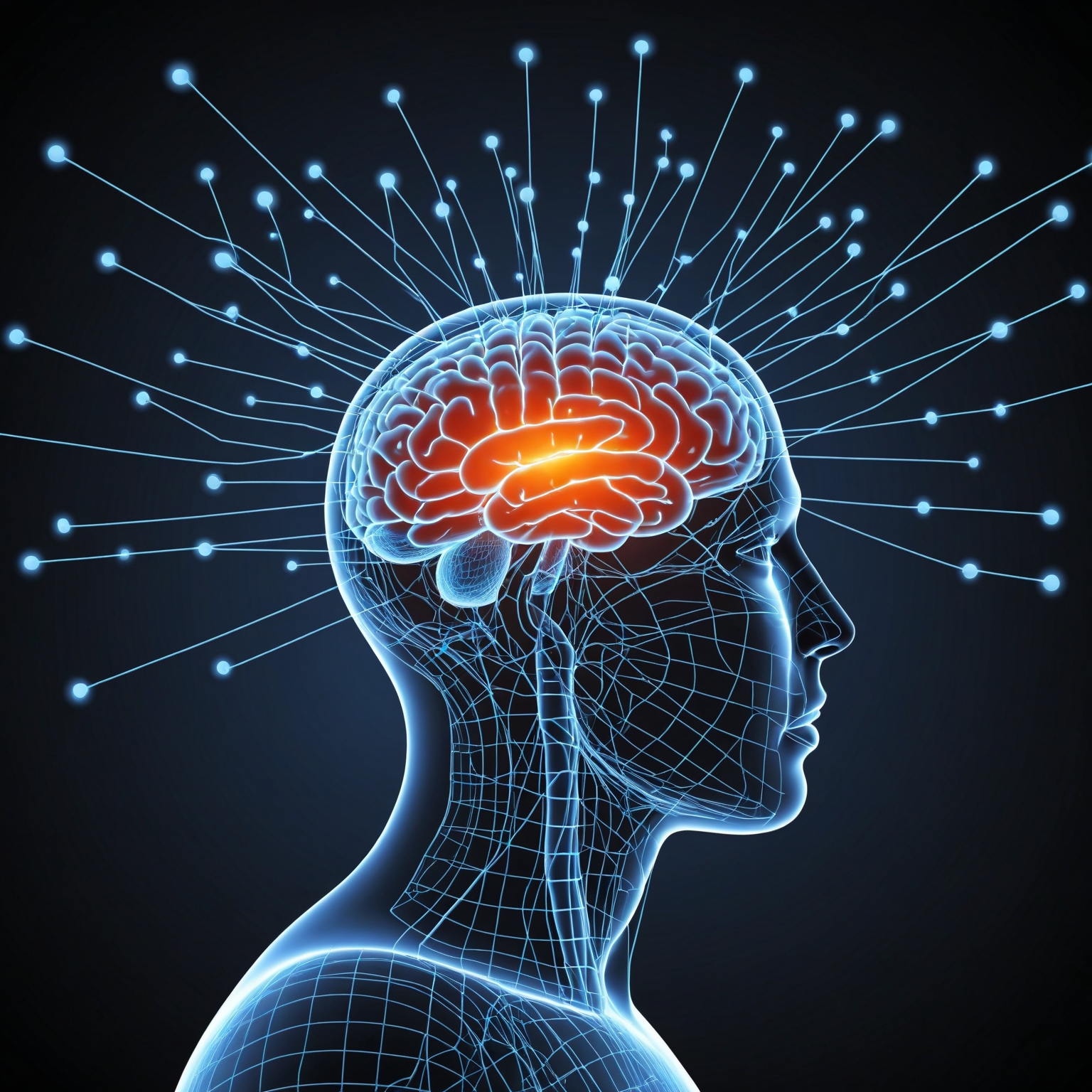Understanding Social Science and Social Engineering: An In-Depth Exploration
Introduction
Social science and social engineering are two distinct yet interconnected fields that play a crucial role in understanding and shaping human societies. While social science is concerned with the study of human behavior and social structures, social engineering focuses on the practical application of social science principles to influence and manage social systems. This blog post delves into the definitions, methodologies, and impacts of both fields, providing a comprehensive understanding of their significance and interrelation.
Social science and social engineering are dynamic and evolving fields essential for comprehending and shaping human societies. While social science involves the systematic study of human behavior and social structures, social engineering applies this knowledge to influence and manage societal systems. This comprehensive exploration delves into their definitions, methodologies, impacts, and ethical considerations, providing a nuanced understanding of these fields.
What is Social Science?
Definition
Social science is an academic discipline that examines society and the relationships among individuals within a society. It encompasses a broad range of fields including sociology, psychology, anthropology, economics, political science, and human geography. Social scientists use various methodologies to study patterns of behavior, social structures, cultural norms, and societal changes.
Key Fields of Social Science
- Sociology: The study of social behavior, institutions, and structures. Sociologists analyze how societies are organized, how social institutions function, and how
 change occurs.
change occurs. - Psychology: The scientific study of the mind and behavior. Psychologists investigate mental processes, emotional responses, and behavior patterns in individuals and groups.
- Anthropology: The study of humans, past and present. Anthropologists explore cultural, social, and biological aspects of human beings, including their development and diversity.
- Economics: The study of the production, distribution, and consumption of goods and services. Economists analyze economic systems, market behaviors, and the impact of economic policies.
- Political Science: The study of political systems, government structures, and political behavior. Political scientists examine the functioning of political institutions, political ideologies, and the impact of public policies.
- Human Geography: The study of the relationship between humans and their environments. Geographers analyze spatial distributions, human interactions with the environment, and the impact of geographic factors on social development.
Methodologies
Social scientists employ various research methodologies to gather data and analyze social phenomena. These include:
- Quantitative Methods: Involving statistical analysis of numerical data. Surveys, experiments, and secondary data analysis are common quantitative methods.
- Qualitative Methods: Involving in-depth analysis of non-numerical data. Interviews, focus groups, ethnography, and content analysis are typical qualitative methods.
- Mixed Methods: Combining quantitative and qualitative approaches to provide a more comprehensive understanding of social phenomena.
Importance of Social Science
Social science provides insights into the functioning of societies and the behavior of individuals within those societies. It helps in understanding the complexities of social interactions, addressing social problems, and informing public policy. By analyzing social trends and patterns, social science contributes to the development of more equitable and effective social systems.
What is Social Engineering?
Definition
Social engineering refers to the use of social science principles to influence and manage social behaviors and structures. It involves the application of knowledge from social sciences to design policies, programs, and interventions aimed at achieving specific social goals. Social engineering can be used for both positive and negative purposes, depending on the intent and ethical considerations of those implementing it.
Key Areas of Social Engineering
- Public Policy: Designing and implementing policies to address social issues such as poverty, education, healthcare, and crime.
- Marketing and Advertising: Influencing consumer behavior through targeted marketing strategies and advertising campaigns.
- Urban Planning: Designing and organizing urban spaces to improve living conditions, enhance social interactions, and promote sustainable development.
- Behavioral Interventions: Implementing programs to change harmful behaviors and promote positive behaviors in areas such as health, education, and environmental conservation.
- Cybersecurity: Manipulating individuals into divulging confidential information or performing actions that compromise security through techniques such as phishing and pretexting.
Techniques in Social Engineering
- Manipulation and Deception: Using psychological manipulation to deceive individuals into revealing confidential information or performing actions that compromise security.
- Persuasion and Influence: Applying principles of persuasion to change attitudes, beliefs, or behaviors. Techniques include the use of authority, social proof, reciprocity, and scarcity.
- Behavioral Nudges: Subtly guiding individuals towards desired behaviors by altering the environment or context in which decisions are made.
Ethical Considerations
Social engineering raises significant ethical concerns, particularly when it involves manipulation or deception. Ethical social engineering should prioritize transparency, consent, and the well-being of individuals and communities. The potential for abuse highlights the need for clear ethical guidelines and oversight.
The Interconnection Between Social Science and Social Engineering
From Theory to Practice
Social engineering relies heavily on insights from social science to design effective interventions and policies. By understanding social behavior and structures through scientific research, social engineers can develop strategies that are more likely to succeed in achieving desired outcomes.
Case Studies
- Public Health Campaigns: Social science research on health behaviors has informed social engineering efforts to design public health campaigns that promote vaccination, smoking cessation, and healthy eating.
- Educational Reforms: Insights from educational psychology and sociology have been applied to develop policies and programs aimed at improving educational outcomes and reducing achievement gaps.
- Urban Renewal Projects: Social science research on community dynamics and spatial planning has guided the design of urban renewal projects that enhance quality of life and foster social cohesion.
Additional Insights into Social Science
Historical Evolution
The development of social science has deep roots in ancient civilizations, where philosophers and thinkers like Plato, Aristotle, and Confucius laid the groundwork for the systematic study of society. The Enlightenment period further advanced social science as scholars began to apply scientific principles to the study of human behavior and social structures. The 19th and 20th centuries saw the formalization of social science disciplines, with figures like Karl Marx, Emile Durkheim, Max Weber, and Sigmund Freud making significant contributions.
Interdisciplinary Nature
Social science is inherently interdisciplinary, often intersecting with natural sciences, humanities, and formal sciences. For example, economics overlaps with mathematics in econometrics, psychology with biology in neuropsychology, and sociology with history in social history. This interdisciplinary approach allows for a more holistic understanding of complex social phenomena.
Modern Challenges and Innovations
Contemporary social science faces several challenges, including addressing global issues like climate change, inequality, and migration. Innovations in data collection and analysis, such as big data analytics, machine learning, and social media research, have revolutionized the field. These advancements enable social scientists to analyze vast amounts of data and gain deeper insights into social patterns and behaviors.
Policy Impact
Social science research significantly impacts public policy and governance. Policymakers rely on social science evidence to design and implement effective interventions in areas such as public health, education, housing, and criminal justice. For instance, social science research on the social determinants of health informs public health strategies aimed at reducing health disparities.
Advanced Perspectives on Social Engineering
Historical Examples
Historical instances of social engineering provide valuable lessons on its potential benefits and risks. The New Deal in the United States during the 1930s is an example of positive social engineering, where government interventions aimed to alleviate the economic hardships of the Great Depression. Conversely, the eugenics movements of the early 20th century illustrate the dangers of unethical social engineering practices that sought to control population characteristics through coercive measures.
Technological Influence
The advent of digital technologies has transformed social engineering, particularly in the realms of cybersecurity and online behavior. Techniques such as spear-phishing and social media manipulation exploit human psychology to achieve malicious goals. On the positive side, technology facilitates large-scale social engineering initiatives like digital public health campaigns, which use social media platforms to disseminate information and encourage healthy behaviors.
Ethical Frameworks
Developing robust ethical frameworks is crucial for guiding social engineering practices. Ethical considerations include respecting individual autonomy, ensuring transparency, obtaining informed consent, and prioritizing the well-being of affected populations. The ethical application of social engineering requires balancing effectiveness with respect for human rights and dignity.
Behavioral Economics
Behavioral economics is a key area where social science and social engineering intersect. This field studies how psychological factors influence economic decisions and applies these insights to design interventions that nudge individuals towards better choices. For example, automatically enrolling employees in retirement savings plans increases participation rates by leveraging behavioral tendencies like inertia and loss aversion.
Integrated Case Studies
Comprehensive Urban Development
Consider a city undergoing redevelopment to improve infrastructure and quality of life. Social scientists conduct extensive research on community needs, traffic patterns, and environmental impact. Based on this data, urban planners (social engineers) design green spaces, efficient public transportation systems, and affordable housing. This holistic approach addresses economic, social, and environmental factors, demonstrating how social science and engineering work together to create sustainable urban environments.
Education System Reform
A country aims to reform its education system to improve student outcomes and reduce disparities. Social scientists analyze factors affecting educational attainment, such as socioeconomic status, teacher quality, and school resources. Policymakers use these insights to implement evidence-based reforms, such as targeted funding for disadvantaged schools, teacher training programs, and curriculum updates. The success of these reforms illustrates the impact of social engineering informed by rigorous social science research.
Leveraging Social Science and Engineering for Positive Impact
Enhancing Public Awareness
Educating the public about the role of social science and social engineering can foster a more informed and engaged citizenry. Public awareness campaigns can highlight the importance of evidence-based policies and the ethical considerations involved in social engineering.
Collaborative Approaches
Collaboration between social scientists, engineers, policymakers, and communities is essential for addressing complex social issues. Interdisciplinary teams can leverage diverse expertise to design and implement holistic solutions that are more likely to succeed and be ethically sound.
Continuous Evaluation
Ongoing evaluation and adaptation are critical for effective social engineering. Continuous monitoring and assessment allow for the identification of unintended consequences and the adjustment of strategies to ensure they remain effective and ethical.
The Intersection of Social Science, Political Science, and Social Engineering in Politics
Introduction
In the realm of politics, terms like social science, political science, and social engineering are frequently used. This is because these fields provide critical frameworks and methodologies for understanding, analyzing, and shaping political processes and social systems.
The Role of Social Science in Politics
Understanding Society
Social science encompasses various disciplines that study human behavior, social structures, and cultural norms. In politics, understanding society is crucial for developing policies that address the needs and concerns of the population. Social scientists conduct research on topics such as public opinion, voting behavior, and social movements, providing valuable insights for political leaders and policymakers.
Evidence-Based Policy Making
Social science research offers empirical data and analytical tools that help politicians make informed decisions. By studying the impacts of previous policies and the current socio-economic landscape, social scientists can predict potential outcomes of proposed policies, enabling evidence-based policymaking. This approach minimizes guesswork and increases the likelihood of successful interventions.
Social Justice and Equity
Social scientists often focus on issues of social justice, equity, and inclusion. In politics, these insights are vital for creating policies that promote fairness and reduce inequalities. Social science research highlights the systemic barriers faced by marginalized communities and informs policies aimed at creating a more equitable society.
The Contribution of Political Science
Analyzing Political Systems
Political science is the study of political institutions, processes, behavior, and ideas. It provides a systematic understanding of how political systems function, from local governance to international relations. Political scientists analyze the structure and function of governments, the behavior of political actors, and the impact of political decisions on society.
Policy Analysis and Development
Political scientists play a key role in policy analysis and development. They assess the feasibility, effectiveness, and implications of policy proposals. By examining case studies, historical trends, and comparative politics, political scientists provide insights that help craft policies that are both practical and effective.
Political Behavior and Public Opinion
Understanding political behavior and public opinion is crucial for political campaigns and governance. Political scientists study how and why people engage in politics, how they form opinions, and what influences their voting behavior. This knowledge helps politicians connect with constituents, design effective campaign strategies, and gauge public support for policies.
The Role of Social Engineering in Politics
Designing Social Systems
Social engineering involves the deliberate design and management of social systems to achieve desired outcomes. In politics, this can mean designing public policies, institutions, and programs that shape social behavior and address societal issues. Social engineering aims to create systems that improve social welfare, economic stability, and overall quality of life.
Behavioral Interventions
Politicians often use social engineering techniques to influence public behavior. For example, public health campaigns that encourage vaccination or anti-smoking initiatives are forms of social engineering. These interventions rely on insights from social science to design messages and strategies that effectively change behavior.
Managing Change
Social engineering is also crucial for managing social change. Political leaders often need to guide societies through transitions, whether it’s economic restructuring, technological advancements, or social reforms. By applying principles of social engineering, they can design strategies that facilitate smooth and positive change, minimizing disruption and resistance.
Why These Terms Are Prevalent in Politics
Complexity of Social Systems
Politics involves managing complex social systems that encompass a wide range of human behaviors, institutions, and cultural norms. Social science, political science, and social engineering provide the theoretical and practical tools needed to understand and manage these complexities.
Informed Decision Making
The use of these fields in politics underscores the importance of informed decision-making. By grounding political decisions in scientific research and systematic analysis, politicians can create more effective and sustainable policies. This reliance on data and theory enhances the legitimacy and efficacy of political actions.
Addressing Contemporary Challenges
Modern societies face a multitude of challenges, including economic inequality, climate change, and technological disruption. Addressing these issues requires an interdisciplinary approach that integrates insights from social science, political science, and social engineering. These fields help politicians design comprehensive strategies that address the root causes of problems and promote long-term solutions.
Ethical Governance
The ethical dimensions of governance are increasingly important in contemporary politics. Social science and political science emphasize the importance of fairness, justice, and equity in policy-making. Social engineering, when used ethically, can help design systems that uphold these values and promote the well-being of all citizens.
Conclusion
The frequent use of terms like social science, political science, and social engineering in politics reflects the need for a deep understanding of human behavior, social structures, and systematic interventions. These fields provide the theoretical frameworks, empirical data, and practical tools necessary for effective governance. By integrating insights from these disciplines, politicians can create policies that are informed, equitable, and capable of addressing the complex challenges of modern society. Understanding and leveraging these fields is crucial for achieving sustainable and positive social change.
Social science and social engineering are deeply interconnected fields that together contribute to our understanding and shaping of human societies. While social science provides the theoretical foundation through the study of social phenomena, social engineering applies this knowledge to influence and manage social behaviors and structures. The integration of these disciplines offers powerful tools for addressing social challenges and promoting positive social change. However, it is essential to navigate the ethical implications carefully to ensure that social engineering practices are conducted responsibly and for the greater good.
Social science and social engineering are complementary fields that together offer powerful tools for understanding and shaping human societies. By integrating insights from social science with practical applications in social engineering, we can address complex social challenges and promote positive social change. However, ethical considerations are paramount to ensure that social engineering practices respect individual rights and contribute to the greater good. Through informed and collaborative efforts, we can harness the potential of these fields to create more equitable and resilient societies.






